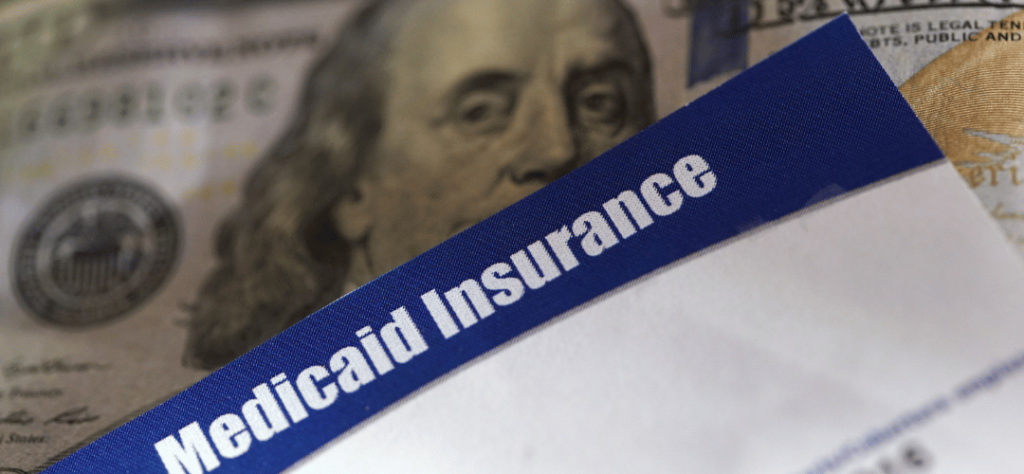Matters Most
New Jersey Elder Law Attorney

Our New Jersey elder law attorneys focus on a variety of issues facing the aging population. In particular, we help clients preserve their assets and mitigate the exorbitant costs of long-term care. Depending on the client’s circumstances and goals, we implement strategies either before they need care or when care is needed. It is never too late to put a plan together to protect your assets. And, if you are eligible to receive Medicaid benefits, we will help prepare and submit a Medicaid application.
Pre-Planning for Long-Term Care
Many people do not realize how expensive long-term care can be. Statistics show that, on average, long-term care can cost up to $142,350 per year in the New York metropolitan area. However, the cost can be even higher. Understandably, most people will have trouble affording such a huge cost, so it is important to plan ahead.
There are two ways to plan for long term care: pre-planning and emergency planning. We recommend pre-planning to our clients who are concerned about the potential cost of long-term care. Pre-planning will give you peace of mind by knowing that you can protect your life savings for your loved ones if you face a health care emergency and need long term care. Health care emergencies are scary. You are dealing with doctors, hospitals, long-term care decisions, family dynamics, financial considerations, and more. This is not a good time to start thinking about how you will pay for care.

Our New Jersey attorneys who focus on elder law are experienced with pre-planning, which includes a comprehensive review of your financial situation and goals. There are many options for planning for long term care, and we explore everything appropriate for your situation. A common option is the “irrevocable Medicaid trust.” This may be a good option for you, but there are other viable ways to protect your assets that don’t involve a trust. Our goal is to identify the right fit for your circumstances.
Then, we work together to align everything and set up the appropriate legal structures to preserve your legacy for future generations. To learn more about Medicaid planning and what it entails, please read this article.
Emergency Medicaid Planning for Long Term Care
Life can take you by surprise, leaving you unexpectedly in need of long term healthcare. Unfortunately, if you do not plan ahead, your options may be limited. Common scenarios are when someone suffers a stroke, gets in an accident, or develops a sudden serious illness and cannot return home after their hospital stay. If rehabilitation is needed, Medicare coverage will only pay up to 100 days. After that, you’re on your own, and the costs of care can be very high.
Depleting your life savings is not your only option. Our New Jersey lawyers are experienced with elder law matters and can help you save as much of your assets as possible. An emergency plan involves analyzing your assets in relation to complicated Medicaid rules and regulations. We help you make asset transfers that comply with Medicaid’s requirements. While emergency planning may have a deeper impact on your savings than pre-planning would, you could still save up to half of your assets or more. That way you can give your money to loved ones instead of spending it all on long-term care.

When we put the plan together, we explain your options clearly so that you understand them. This is never an easy time in anyone’s life. With the guidance of our experienced elder law attorneys you can at least better understand your situation and have comfort knowing that you saved what you can.
Read this article to learn more about the Medicaid spend-down.
Medicaid Applications
Medicaid applications can be difficult and time consuming. Medicaid’s rules regarding an applicant’s resources and income are quite strict. Precise compliance with the rules is crucial for a successful application.

Medicaid requires disclosure of all financial records from the last five years. This is referred to as the “five year look back.” If you are married, the agency also wants to see your spouse’s financial information from the past five years. The records are scrutinized by Medicaid to find anything it determines is an “uncompensated transfer.” The basic concept is that you cannot just give away your money to qualify for this public benefits program. If Medicaid finds uncompensated transfers, they will apply a “penalty period.” If you receive a Medicaid penalty, you will have to pay for long term care throughout the penalty period before Medicaid takes over.
Working with our New Jersey elder law attorneys will make the application process much easier. Moreover, it can mitigate your fear of making a mistake. We will provide guidance throughout the process about gathering the required information and documentation to prepare the application. If you are considering applying for Medicaid, read this article to learn more.The focus of our elder law practice is to help our clients preserve their life savings by softening the financial blow of long-term care costs. We provide our clients with clear and insightful legal advice so they understand all the options available to them. Let us help you make the best decisions possible, whether it involves pre-planning for long term care, emergency Medicaid planning, or putting together a Medicaid application. It is never too late to plan for long-term care, so contact us today to see how we can help.





